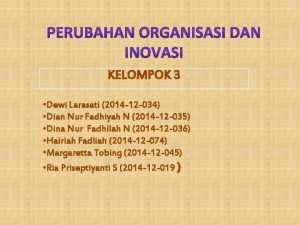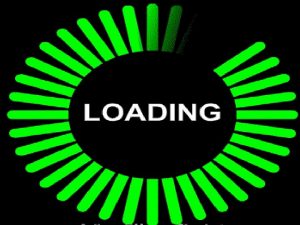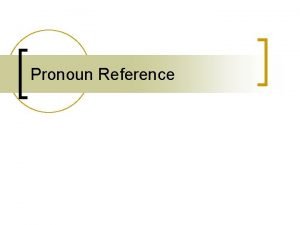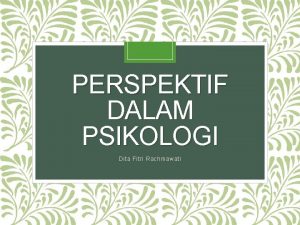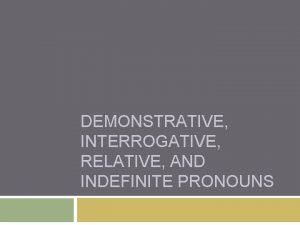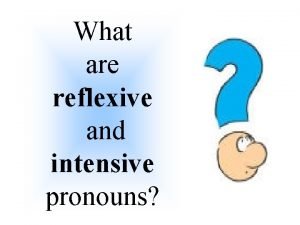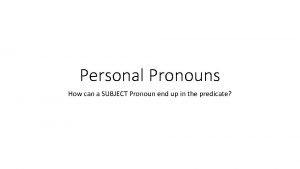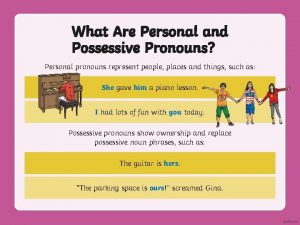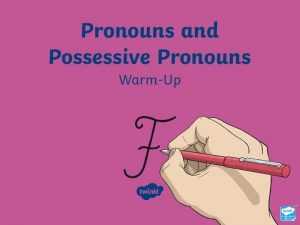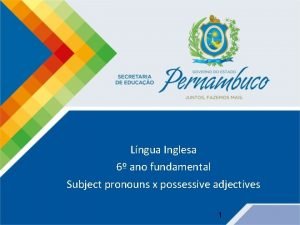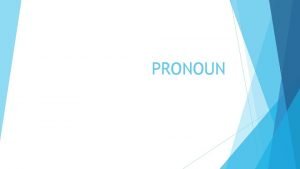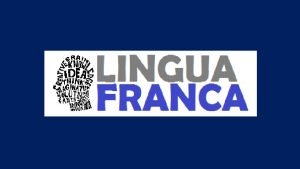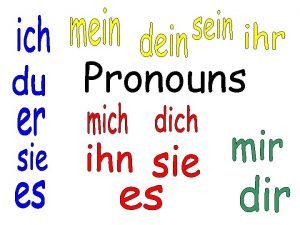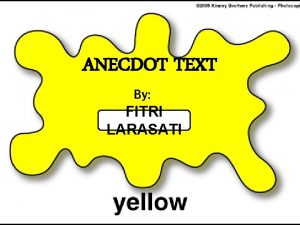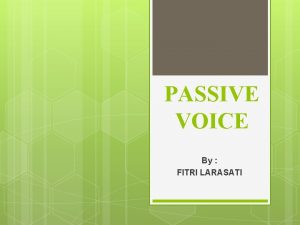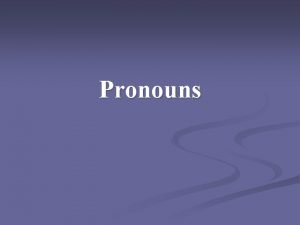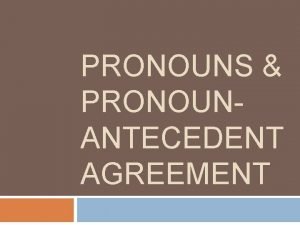pronouns Fitri Larasati 1305020072 What is Pronoun Pronouns













- Slides: 13

pronouns Fitri Larasati (1305020072)

What is Pronoun ? Pronouns take the place of noun

Read it please!!! 1. John gave John’s ring to Jenny, but Jenny returned the ring to John on John and Jenny’s wedding day. 2. John gave his ring to Jenny, but she returned it to him on their wedding day.

Types of Pronoun 1. Personal pronouns 2. Possessive pronouns 3. Reflexive pronouns 4. Relative pronouns 5. Demonstrative pronouns 6. Interrogative pronouns 7. Indefinite pronouns 8. Reciprocal pronouns

Pronoun

Personal pronoun § Personal pronoun describes a particular person or thing. § Subject pronouns § Object pronouns : I, you, they, we, he, she, it : me, you, our, him, her, it Examples : 1. I go to school. 2. I saw her yesterday. 3. They play golf.

POSSESSIVE ADJECTIVE vs. POSSESSIVE PRONOUN § Possessive adjectives are used to modify noun that follows them. ( my, your, his, her, their, its ) Example : This is my book. § Possessive pronoun are used to describe things and the owner without mentioning the things themselves. ( mine, yours, theirs, his, hers, theirs, its ) Example : This book is mine

REFLEXIVE PRONOUN Reflexive pronoun describes noun when subject’s action affects the subject itself. (myself, yourself, themselves, ourselves, himself, herself, itself ) Example : I look at myself in the mirror. you should think about yourself.

INTERROGATIVE PRONOUN Pronoun that are used to ask questions (5 W+1 H). Example : 1. Who is your father ? 2. What have you written?

RELATIVE PRONOUN ü Include : who, whom, whose, which, that. ü Relative pronoun is used to join two sentences together. Example : Fitri studies English. She will go to abroad. Fitri who will go to abroad studies English.

Demonstrative pronoun Ø Include : this, these, that, those. Ø Demonstrative pronoun is a pronoun that points to a thing. Ø Example : 1. This is our car 2. Those are our plates.

Reciprocal pronoun v Reciprocal pronoun are used when two subject reciprocate to the other. v Include : each other, one another v Example : 1. John and Marry are talking each other. 2. The student gave cards to one another.

INDEFINITE PRONOUN § Indefinite pronoun doesn’t refer to any specific person. § Include : anyone, everyone, someone, nobody, anything, something, etc. § Example : 1. Somebody left his book on the desk. 2. Everyone has their own idea.
 Dewi ayu larasati
Dewi ayu larasati Desi larasati
Desi larasati Subjective pronouns meaning
Subjective pronouns meaning Fitri amelia unp
Fitri amelia unp Dita fitri rachmawati
Dita fitri rachmawati Dita fitri rachmawati
Dita fitri rachmawati Relative demonstrative pronouns
Relative demonstrative pronouns Subject object and reflexive pronouns
Subject object and reflexive pronouns Whats a intensive pronoun
Whats a intensive pronoun Possessive adjectives interrogative
Possessive adjectives interrogative Predicate pronoun
Predicate pronoun Personal vs possessive pronouns
Personal vs possessive pronouns Personal pronouns and possessive pronouns
Personal pronouns and possessive pronouns Subject pronouns exercícios
Subject pronouns exercícios
